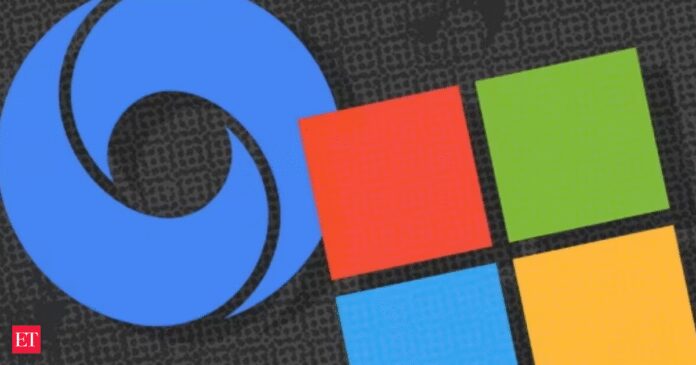The recruitment push isn’t just about pay. Microsoft is selling a different kind of pitch, freedom, speed, and autonomy.
According to The Wall Street Journal, Suleyman has been personally involved in calling up former colleagues and DeepMind engineers to offer something they say Google no longer provides: a leaner, more agile work environment.
“Startup vibe” over hierarchy
Suleyman’s team, now operating mostly out of Mountain View, California, has been described as a self-contained hub of innovation. It also has a London presence. Unlike Microsoft’s usual headquarters in Redmond, this team functions with considerable independence.
At the heart of Suleyman’s offer is the idea of a “startup vibe”, fewer layers, smaller teams, faster decision-making. That approach has clearly struck a chord.
In a LinkedIn post last month, Amar Subramanya, who worked at Google for 16 years and was VP of Engineering on the Gemini AI project, said, “The culture here is refreshingly low ego yet bursting with ambition. It reminds me of the best parts of a startup, fast-moving, collaborative, and deeply focused on building truly innovative, state-of-the-art foundation models to drive delightful AI-powered products such as Microsoft Copilot.”Subramanya has now joined Microsoft AI as a Corporate Vice President.
From DeepMind to Copilot
The recruits are working on Microsoft’s Copilot, a consumer-facing AI assistant positioned against ChatGPT and Google’s Gemini. While enterprise versions of Copilot are embedded within Microsoft 365 and GitHub, Suleyman’s unit is focused on building a version tailored for everyday users.
According to the WSJ report, Microsoft recently rolled out updates to Copilot’s integration with its Edge browser, letting users compare hotel options or summarise content from open tabs.
Other key hires include:
- Adam Sadovsky, a former senior director at DeepMind with 18 years at Google, now also a Corporate VP at Microsoft AI
- Sonal Gupta, an engineering lead at DeepMind until June, now listed as technical staff at Microsoft
- Jonas Rothfuss, who spent a year as an AI research scientist at DeepMind before joining Suleyman’s team in May
How Microsoft’s offer stacks up
Microsoft’s offers, according to sources cited by the WSJ, have been “heftier” than what DeepMind typically pays especially for senior staff. But they don’t come close to the jaw-dropping nine-figure deals being offered by Meta.
Meta, the parent company of Facebook, is aggressively poaching talent from across the AI industry. It has offered some researchers up to $300 million to jump ship. Sam Altman, CEO of OpenAI, recently claimed Meta was offering signing bonuses of $100 million to lure his employees.
Why DeepMind employees are leaving
DeepMind now has around 6,000 employees and has become an integral part of Google’s AI strategy. But with that scale has come bureaucracy, according to some former staff.
Laszlo Bock, a former senior HR executive at Google, told WSJ, “It feels much more like a company run by a finance person than an engineer.”
He added that Google now resembles a 20-year-old version of Microsoft, profitable, but slow-moving and political.
This shift in perception seems to be fuelling some of the migration.
Google Responds
Google has responded by downplaying the exits. It told WSJ, “We are excited that we are able to attract the world’s leading AI talent, including researchers and engineers who come from rival labs.”
It also said its attrition rates remain below industry averages. And in parallel, Google has been making high-profile hires of its own, including the CEO and team behind Windsurf, an AI coding startup it acquired in a $2.4 billion deal.
The AI talent race is getting personal
Suleyman’s direct role in recruitment adds a personal touch to Microsoft’s AI strategy. After leaving DeepMind, he founded a startup called Inflection, and later joined Microsoft in 2023. Several of his former colleagues from Inflection have followed him into his new role.
This talent war isn’t just about competing products. It’s about who can build the right kind of environment to unlock breakthroughs in artificial intelligence.
Interestingly, this is a reversal of roles from the early 2000s. Back then, Google was the young, hungry company that lured engineers from Microsoft with promises of speed and impact. Today, Microsoft is playing that exact card.
The current wave of hiring also comes at an unusual time. Earlier this month, Microsoft announced 9,000 job cuts, about 4 percent of its global workforce. Yet, the company continues to spend heavily on its AI unit.
A Microsoft spokesperson told WSJ, “All of our senior leaders have equal ability to recruit talent and manage their teams in a way that works successfully for their business and their people alike.”
And that’s the strategy Suleyman seems to be running with bring in people who want to move fast, give them the space to build, and keep the politics out.
Meta, OpenAI, and the new AI arms race
While Microsoft woos engineers with culture, Meta continues to dominate the cash-led arms race. Alongside big bonuses, Meta recently formed a new Artificial Superintelligence (ASI) lab led by Nat Friedman, former GitHub CEO, and Alexandr Wang, co-founder of Scale AI. The lab is backed by a $14.3 billion investment.
Meta has also hired from Apple, OpenAI, Anthropic, and DeepMind. Engineers, it seems, are now being treated like top athletes, with companies vying to outbid each other for their skills.
Microsoft’s hiring spree signals a clear shift in how big tech is approaching the AI race. Talent is the new battleground but culture is the new currency. And as the industry moves into the next phase of AI development, where and how people choose to work might matter as much as the models they build.
(To stay updated on the stories that are going viral follow ET Trending.)

